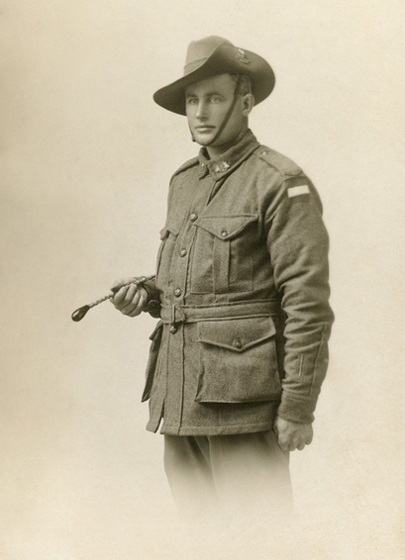

"Tom" Thomas MCGILL
Born 31 October 1890 in New Luce, Wigtown, Scotland [28]
Son of James MCGILL and Janet BELL [28]
His father was working as a shepherd at the time of his birth and he was born at 6am at Greenhills Sherperd's House [28]
In 1901 he was living with his parents and siblings at Changue Cottage on Changue Farm in Mochrum, Wigtown, Scotland [20]
Departed London, England with his parents and siblings John, James, Margaret, Mary and Robert on the Otway on 24 June 1910 [203]
They arrived on the steamship Otway in Fremantle, Western Australia just over a month later on 26 July 1910 [70]
Labourer and Farmer in Coorow, Western Australia 1911-1916 [6] [18] [19] [P147]
Resided with his parents at Coorow House and helped his father farm the property of Edward McGill BLYTHE [P147]
Came 3rd in the Obstacle Race at the Coorow Farmers' Progress Association's Picnic & Sports on 7 October 1911 [39: 12-Oct-1911]
He gave a donation at the Coorow Football Club's Annual Sports Day held on 30 September 1913 [9: 10-Oct-1913]
His cousin, George BELL of Coorow, was early to enlist during the First World War and was killed at the Gallipoli landings in 1915 [18]
He and his brother John successfully applied to enlist in the Australian Imperial Force on 19 March 1916 in Geraldton [30]
Resided in Coorow until enlisting in the Australian Imperial Force in Blackboy Hill on 17 April 1916 [30: item 1944164]
Gave his father James MCGILL of Coorow as his next of kin, and allocated two fifths of his pay to his father [30]
On enlistment he was 5 feet 7½ inches tall, weighed 136 pounds, and had blue eyes, black-grey hair, and a bright complexion [30]
After training at Blackboy Hill he was appointed on 12 September 1916 to the 21st Reinforcements of the 16th Battalion [30]
Embarked from Fremantle, Western Australia for active service abroad on the H.M.A.T. A23 Suffolk on 13 October 1916 [18]
After further training in Codford, Wiltshire, England proceeded to France on the steamship Princess Victoria on 8 February 1916 [30]
Private 6544 in the Australian Imperial Force's 16th Battalion in France during the First World War [30]
Wounded in Action in France on 11 April 1917 and was invalided to England for treatment for a gunshot wound to his right arm [30]
Returned to France on 20 July 1917, rejoined the 16th Battalion on 12 August 1917 and eight days later was fatally wounded [30]
Died 20 August 1917 from wounds received in action at the 2nd Australian Casualty Clearing Station in France [30]
Buried at the Trois Arbres Cemetery in Steenwerck, France [17]
The Australian Imperial Force granted his mother a fortnightly pension of 40/- on 30 October 1917 [30]
His parents received his effects, photos of his grave, Memorial Scroll, Victory Medal, British War Medal and Memorial Plaque [30]
His effects included letters, photos, coin, note, badge, metal ring, thimble, testament, pocket book, two locks of hair and a wallet [30]
His mother planted a tree in his memory at Kings Park in Perth, next to one planted for his cousin George Bell [P350]
From The West Australian newspaper, Saturday 20 August 1921:
In Memoriam - Anzac Heroes
"McGill - In Loving memory of dear son and brother, private Thomas McGill, August 20, 1917; also our dear nephew and cousin, Private George Bell, killed at Gallipoli April 25, 1915. Dear boys, sadly missed."
| Reference: Carnamah Historical Society & Museum and North Midlands Project, 'Thomas McGill' in Biographical Dictionary of Coorow, Carnamah and Three Springs, retrieved 18 February 2026 from www.carnamah.com.au/bio/thomas-mcgill [reference list] |
 |
Use the below form or email history@carnamah.com.au |




